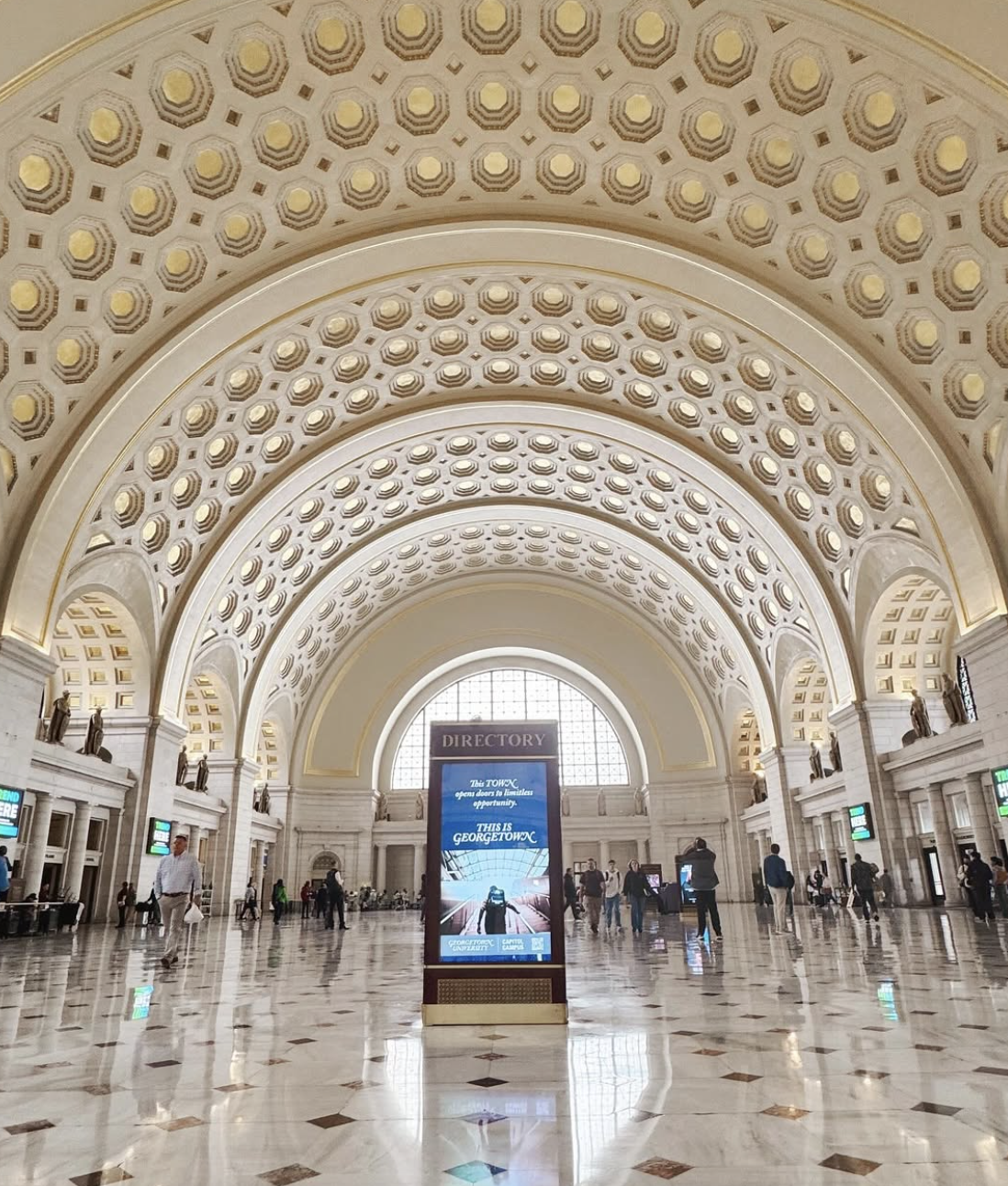The U.S. Department of Transportation (DOT) announced plans to reclaim management of Union Station, a transportation hub and national landmark, Aug. 27.

The Trump administration cited concerns about homelessness and public safety as reasons for assuming command of Union Station. The DOT, which regulates, funds and oversees transportation, has owned the station since 1981, but local nonprofit the Union Station Redevelopment Corporation (USRC) has managed the travel center. Since July 2024, Amtrak, the government-owned passenger rail service, has taken over operating Union Station, which Georgetown University students often use.
Julia Swerdin (CAS ’26), who frequents Union Station to travel home, said her experience at the transportation hub has been a positive one, and she does not see the need for federal control of the station.
“I generally have a good experience; I think it’s pretty clean and has good restaurants,” Swerdin told The Hoya. “Occasionally, I see a homeless person coming up and asking for food or money, but I overall feel safe, and it’s a pleasant experience.”
At an event celebrating the release of the new Acela train cars, Transportation Secretary Sean Duffy said that current management has neglected Union Station and that he wants to transform the station into a world-class transit hub.
“Instead of being a point of pride, Washington’s Union Station has fallen into disrepair,” Duffy said at the event. “By reclaiming station management, we will help make this city safe and beautiful at a fraction of the cost.”
Emily Eppel (CAS ’26), who frequented Union Station while moving to Capitol Hill, said she found the station dirty and often encountered unhoused individuals.
“I obviously noticed that it’s very dirty, and no matter what time of day I was at Union Station, there were a lot of homeless people,” Eppel told The Hoya.
Union Station offers national and regional train lines, as well as commuter rails for Maryland and Virginia. It serves approximately 70,000 passengers on more than 200 daily trains and features dozens of shops and restaurants.
Amtrak will continue to operate the passenger area while the DOT and USRC will manage the retail and building renovations, according to Duffy.
Concurrently with the announcement of the management transition, Amtrak launched the NextGen Acela high-speed trains, a modern design aimed at making Amtrak’s trains more reliable while lowering prices.
Swerdin said the prices of the current Acela line are not affordable for many college students.
“I think that’s awesome if they are making it more accessible because, as a student, it’s definitely not accessible for me to take Acela regularly because it’s usually about double the price, if not more, than a regular ticket,” Swerdin said.
“If they are able to make it less expensive by expanding it, that would be really beneficial for people like me and just the general population who can’t afford to spend $300 on a train ticket,” Swerdin added.
The NextGen Acela is a high-speed transit option in Amtrak’s Northeast Corridor, which connects Washington, D.C. and Boston. Its ticket prices are often more expensive than the traditional Northeast Regional.
With reforms in process for Union Station, Swerdin said she would like to see an increase in security, as there are no security screenings in place to board a train.
“An increased security would be nice, because I’ve never felt necessarily unsafe on a train, but it is a little crazy to me that there is zero security whatsoever to get onto a train,” Swerdin said. “They don’t even check your ticket before you board. They don’t scan your bag or check your ID.”
Mayor Muriel Bowser said that the city could not afford the $8 billion required to repair the station, and she welcomes the federal government’s assistance in updating Union Station.
“It is an important regional asset; it’s an important asset for the Eastern Seaboard; it’s an important asset for the nation,” Bowser said at the press conference. “It is appropriate in my view for the federal government to make the necessary investments in the transformation of Union Station.”
Eppel said she hopes the change in management will be a positive one.
“I hope that this change will help restore Union Station and make it both more accessible and convenient for those who use it,” Eppel said.